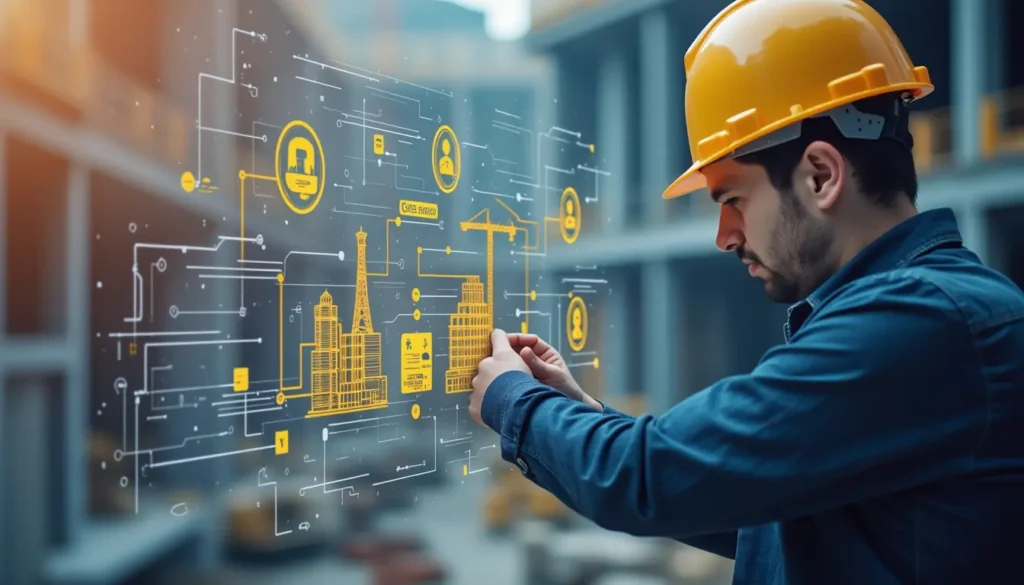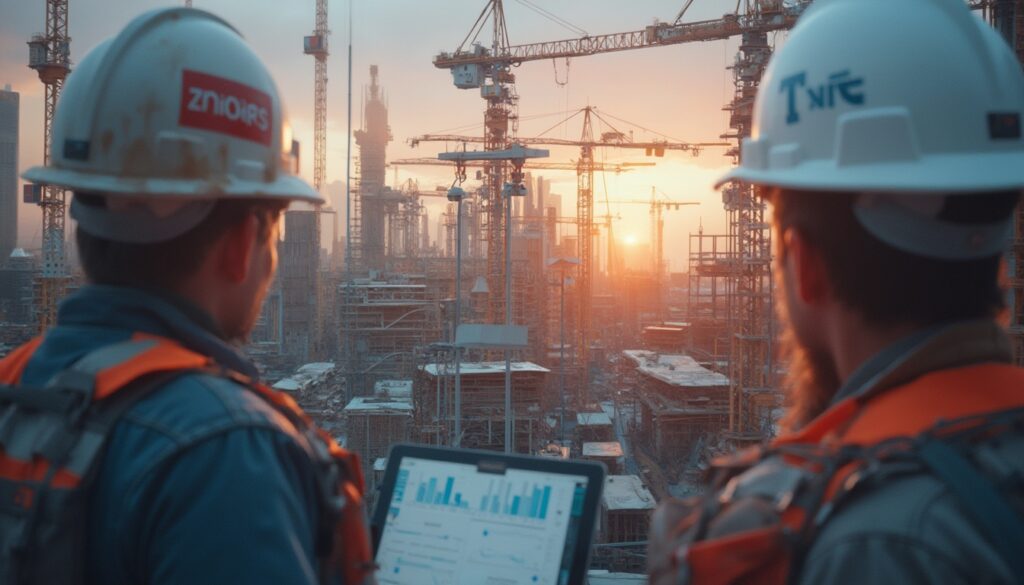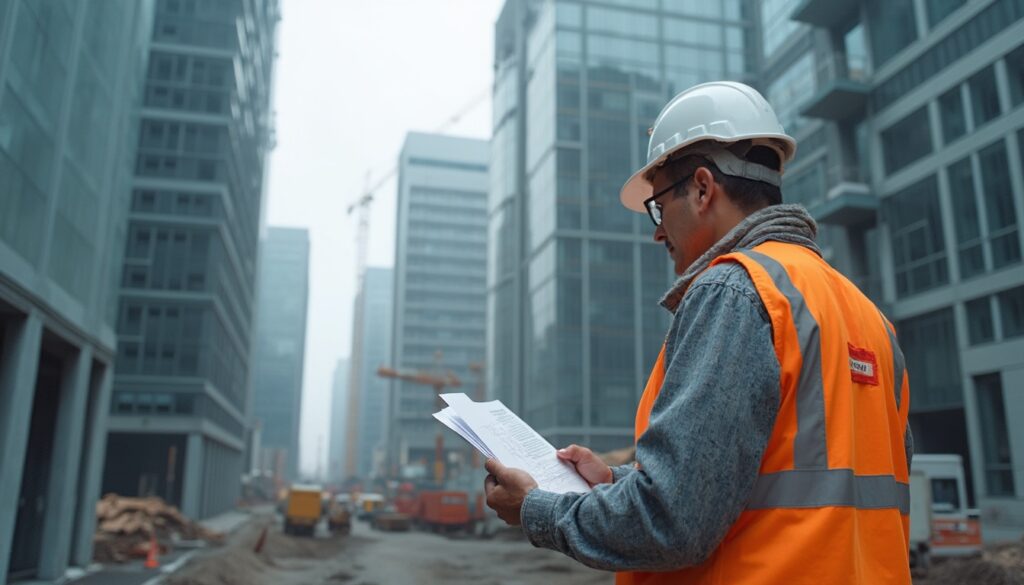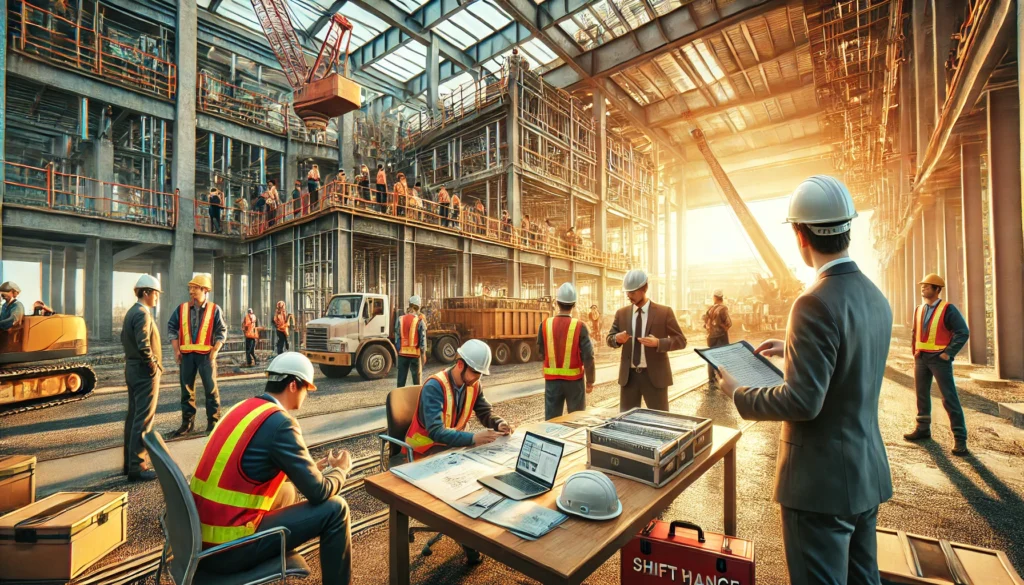The Status Quo: Digitalization Gap in the German Construction Industry
The German construction sector scores only 53 out of 100 possible points in the digitalization index, falling behind almost all other industries. Nevertheless, 93 percent of construction companies plan to increase their investments in digital solutions. However, many companies implement digitalization projects only ad hoc, without a long-term strategy for the more than 10 trades in construction. This gap between recognized potential and actual implementation results in significant efficiency losses of over 10 billion euros annually. This inefficiency is most evident in daily project communication and documentation.
From Chaos to Control: Overcoming the Disadvantages of WhatsApp & Co.
On a typical construction site, 3 to 5 different channels are often used for communication, ranging from phone calls and emails to WhatsApp groups. This jumble leads to important information, such as instructions or approvals, being lost or inadequately documented in 4 out of 10 cases. A central Construction Site App provides a remedy by consolidating all relevant data in one accessible place for everyone. Transitioning from unstructured chats to a professional solution reduces misunderstandings by a proven 30%. The introduction of a central platform is the first step towards seamless project documentation.
Legal Certainty at the Push of a Button: Ensuring Court-Admissible Construction Documentation
Seamless construction documentation is essential for acceptance and warranty according to the state building codes and the HOAI. However, the manual creation of daily construction reports is prone to errors and costs a site manager an average of 1 hour per day. An Construction Site App automates this process and creates immutable, timestamped entries. This reduces the risk in liability issues by up to 90%, as every decision and construction progress is documented with evidence. A good app covers the following areas:
- Seamless recording of all events in the construction log with just 2 clicks.
- Photo documentation with timestamps and location data directly from the app.
- Digital defect management with assignment of responsibilities and deadlines in under 60 seconds.
- Recording of working hours and equipment usage with direct project assignment.
- Automatic weather data collection for each documentation entry.
- Revision-proof storage of all data for at least 10 years.
These automated processes not only create legal certainty but also lead to a significant increase in operational efficiency.
Efficiency in Focus: Save up to 5 Hours per Week Through Digital Processes
Through the digitalization of repetitive tasks, site managers can save up to 5 hours per week in administrative effort. A powerful construction site app replaces manual processes with efficient digital workflows. The digital capture of measurements or time sheets reduces the transmission effort to the office by 100%. Real-time synchronization between the construction site and the office ensures that all project participants are always on the same page, reducing queries by 50%. The following features are crucial to maximizing efficiency:
- Digital Forms: Replace paper checklists and logs with customizable digital forms that take 2 minutes to complete.
- Task Management: Assign tasks with deadlines and priorities directly to the responsible employees and track status in real-time.
- Automated Reports: Create daily construction reports, defect notices, or performance records with just one click.
- Resource Planning: Keep track of equipment and materials and request resupply directly through the app, improving utilization by 20%.
However, this increase in efficiency is only possible if employees also adopt the new technology.
Overcoming the Biggest Hurdle: 100% Employee Acceptance Without Training
The introduction of new software fails 70% of the time due to a lack of acceptance from site employees. Many employees do not want to or cannot learn and install a new, complex app. Valoon fundamentally solves this problem: Employees on the construction site continue to communicate via WhatsApp, which is already installed on 98% of their smartphones. No download, no registration, and no training for construction staff are required. They send photos, videos, voice messages, and texts as usual via WhatsApp to a project number. Valoon automatically structures this information in the background and securely archives it in the system. This simplicity leads to a 100% acceptance rate from day one and also overcomes language barriers through an integrated live translation in over 20 languages. Thus, digital collaboration finally becomes a reality for the entire team.
Conclusion: Your Advantage with Valoon – Simple, Efficient, Legally Secure
A modern Construction Site App is no longer a luxury but a critical factor for the success of construction projects. It increases efficiency by up to 25% by automating administrative tasks and centralizing communication. Valoon follows a unique path: By integrating WhatsApp, immediate and complete acceptance within the team is achieved, which poses a significant challenge for over 90% of competing solutions. You receive seamless, legally secure documentation without your on-site employees needing to learn a new app. Secure these advantages and reduce your administrative effort by up to 80%. Book your free and non-binding demo now.
More Links
The platform de.digital provides comprehensive information and data on the digitalization index for Germany.
Das Fraunhofer IESE highlights the results of a study on digitalization in the construction industry in a blog article.
Der HDI Infoletter Issue 05/2023 informs about relevant liability risks in the construction sector.
Die BG Bau provides important regulations and rules regarding safety and health in the construction industry.
Auf gesetze-im-internet.de contains the complete Construction Site Ordinance (BaustellV) with all legal regulations for safety and health protection on construction sites.
BIM Deutschland provides answers to frequently asked questions (FAQ) regarding Building Information Modeling (BIM) in Germany.
Die DGUV (German Statutory Accident Insurance) offers comprehensive information on safety and health at the workplace.
Das Statistical Federal Office (Destatis) publishes an article on the digitalization potential in construction activity statistics.
FAQ
How is data security ensured in the construction site app?
Valoon ensures data security through GDPR-compliant processing and storage of all data on certified servers in Germany. We use end-to-end encryption and ensure that all information is securely archived and protected from unauthorized access.
Does the app work without an internet connection?
Yes, the Valoon platform is designed for employees on the construction site to communicate via WhatsApp, which also works with low bandwidth. The web application used in the office requires an internet connection to synchronize and manage data in real-time.
Do my employees on the construction site need to install a new app?
No. That is the key advantage of Valoon. Your employees on the construction site continue to use WhatsApp, which they are already familiar with and use daily. No installation, no registration, and no training is necessary, guaranteeing immediate acceptance.
Can external partners such as subcontractors be involved?
Yes, you can easily and conveniently invite external partners to individual projects. They also only need WhatsApp to communicate and exchange data with you. The access management ensures that everyone sees only the information relevant to them.
What languages are supported by the translation function?
Our integrated live translation function overcomes language barriers on the construction site by translating text and voice messages in real-time into over 20 languages. This includes, among others, English, Polish, Romanian, Turkish, Arabic, and many more.
How quickly can I get started with Valoon?
Getting started with Valoon is possible within 24 hours. After a brief online introduction for office staff, you can set up your first project and immediately start communicating with the entire construction site team. Simply book a free demo to get familiar with the process.








